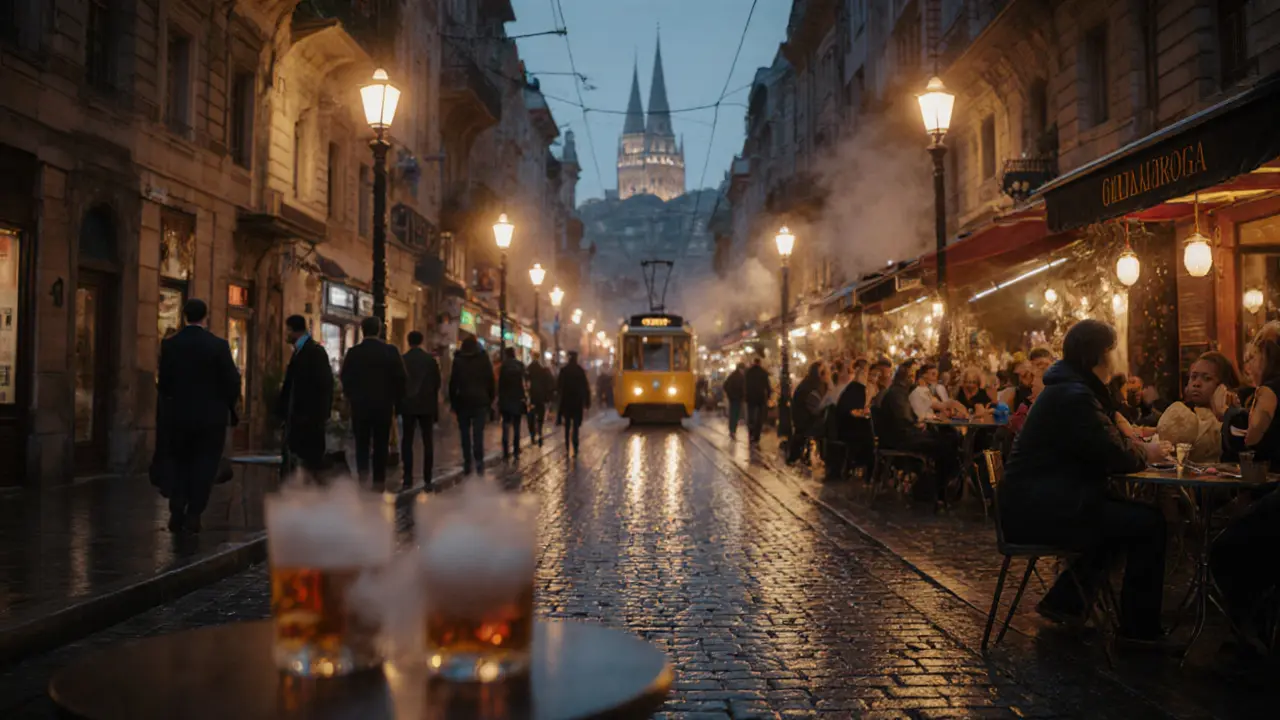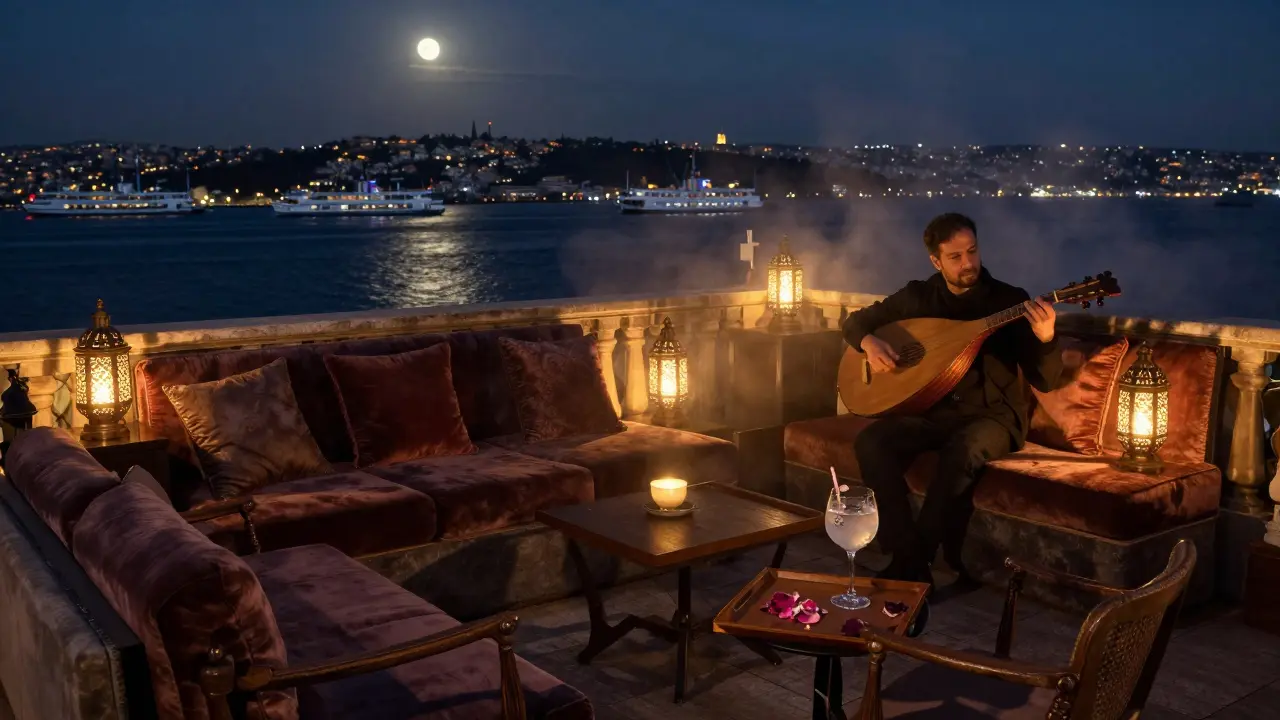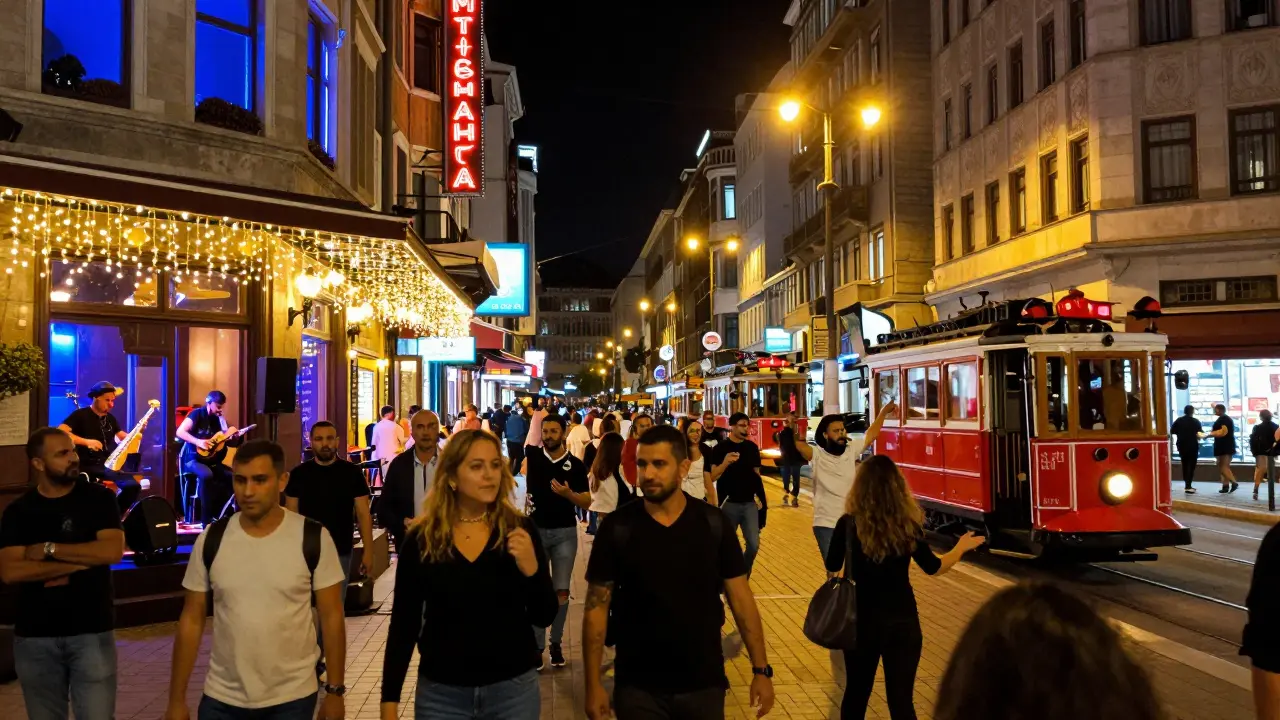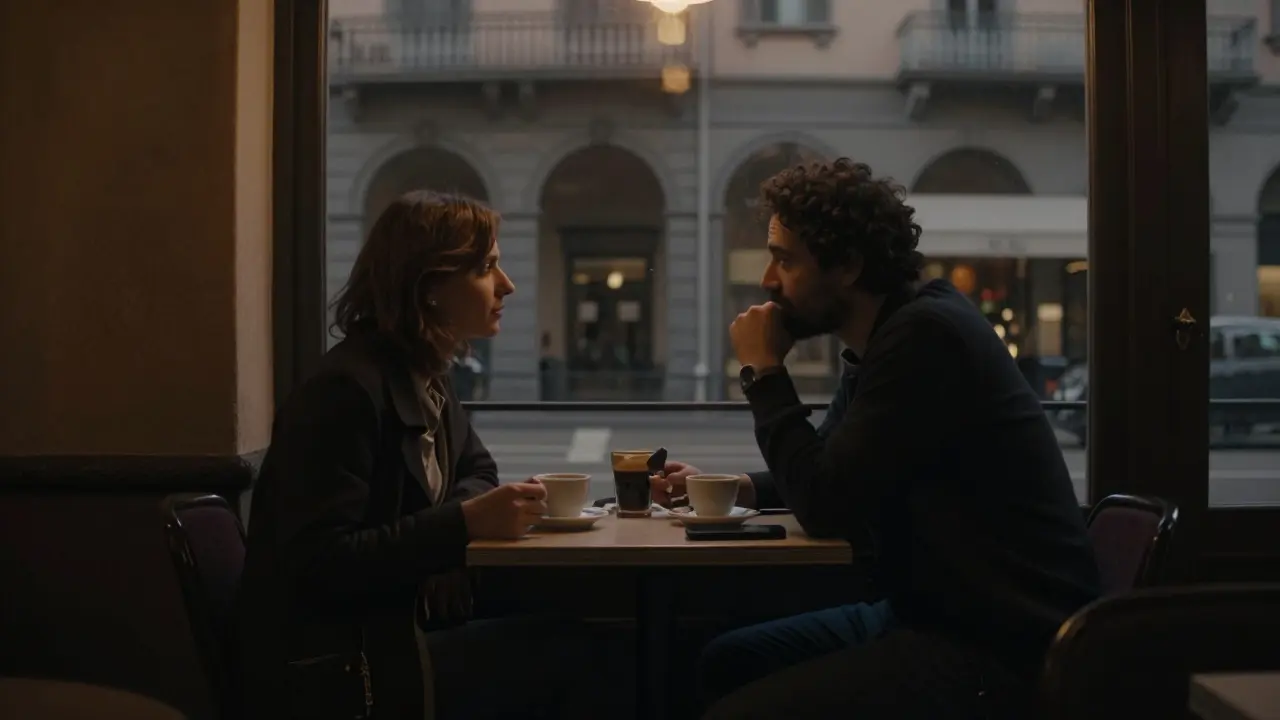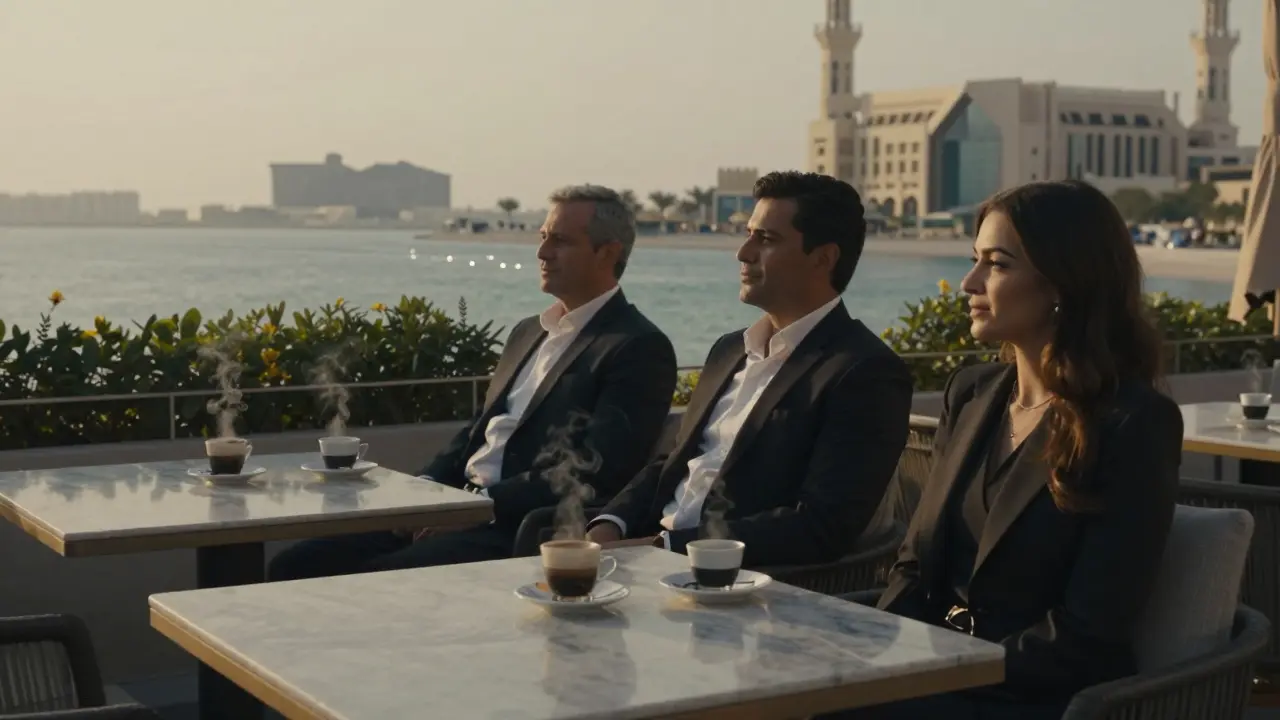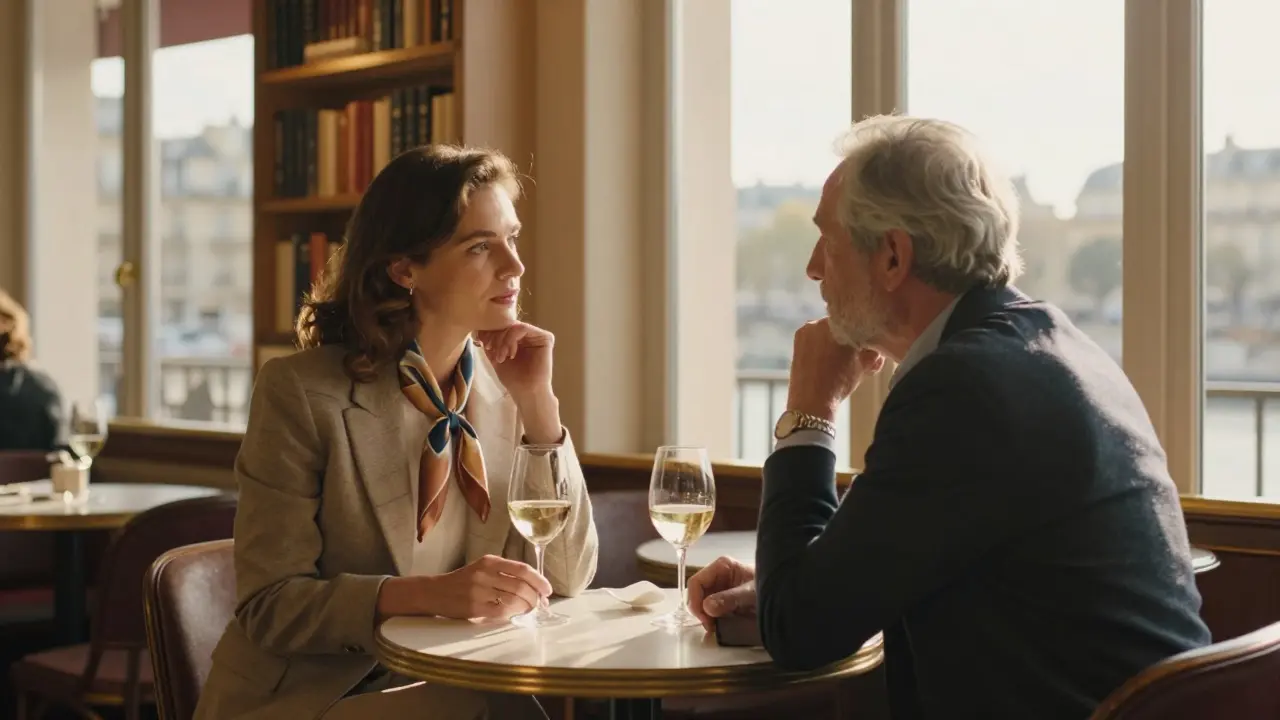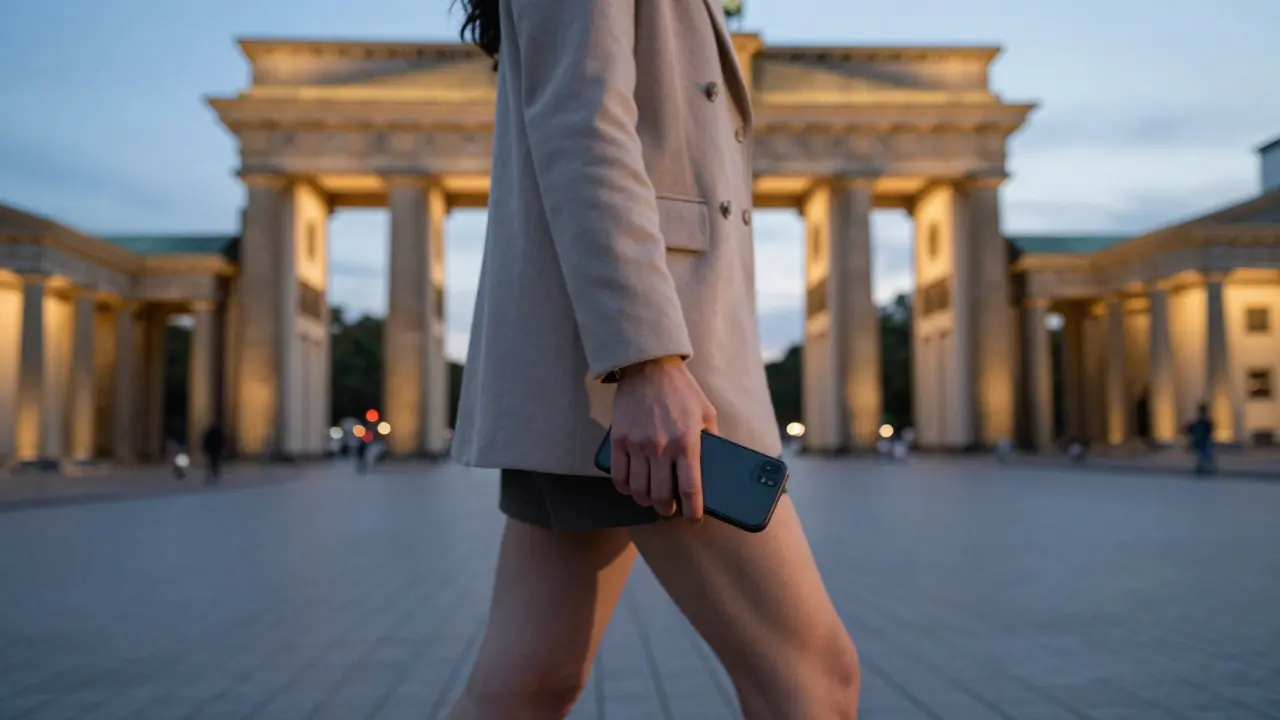When the sun sets over the Bosphorus, Istanbul doesn’t sleep-it transforms. The city’s nightlife isn’t just about clubs and cocktails; it’s a living blend of centuries-old traditions, street-side aromas, and rhythms that have echoed through Ottoman courtyards and modern basements alike. You won’t find just one kind of night here. You’ll find the clink of glasses in a hidden wine bar under Galata Tower, the smell of grilling sardines drifting from a dockside grill in Karaköy, and the sound of ney flutes drifting from a traditional meyhane where old men play backgammon and sing folk songs with tears in their eyes.
Where the Night Begins: Beyoğlu and İstiklal Avenue
Start your night in Beyoğlu, where İstiklal Avenue pulses like a heartbeat. This pedestrian street, lined with 19th-century buildings and vintage trams, isn’t just a tourist walk-it’s where locals come to be seen, to eat, to argue about politics, and to dance. By 9 p.m., the sidewalk cafes are full. Order a glass of Raki with ice and water; watch it turn milky white as it dilutes. It’s not a drink-it’s a ritual. The scent of grilled octopus and fried calamari floats from tiny eateries tucked between bookstores and vintage record shops.
Don’t miss the side alleys. Turn left at the Galatasaray High School and find yourself in Çiçek Pasajı, the Flower Passage. Once a wine merchant’s arcade, now it’s packed with meyhanes serving meze platters so large you’ll need two hands. Try the haydari (yogurt with garlic and dill), stuffed grape leaves, and grilled eggplant with pomegranate molasses. Eat slowly. The waiters don’t rush you. They’ll refill your glass without asking. That’s how it’s done here.
The Secret Meze Bars of Karaköy
If Beyoğlu is the stage, Karaköy is the backstage. This former port district has become the quiet heart of Istanbul’s food-first nightlife. Here, the bars don’t play loud music. They play silence-broken only by the sizzle of lamb kebabs and the clink of ceramic plates.
At Asitane, tucked behind a plain door near the Galata Bridge, they serve Ottoman-era recipes passed down for generations. The meze here isn’t just appetizers-it’s history. Try the İşkembe Çorbası (tripe soup) as a starter if you’re brave. It’s not for everyone, but those who try it never forget it. The real star? The Çılbır-poached eggs on yogurt with garlic and melted butter, drizzled with paprika oil. It’s simple. It’s perfect. And it’s served with a side of warm bread that’s still steaming.
At Bar 61, the wine list reads like a map of Anatolia. A glass of Öküzgözü from Eastern Turkey? Try it. A bold, earthy red with notes of dried plum and smoke? It pairs better with grilled halloumi than any French Pinot Noir ever could. The owner, a former chef from Izmir, will tell you: “In Istanbul, we don’t drink to get drunk. We drink to talk. To remember. To stay up late with the people who matter.”
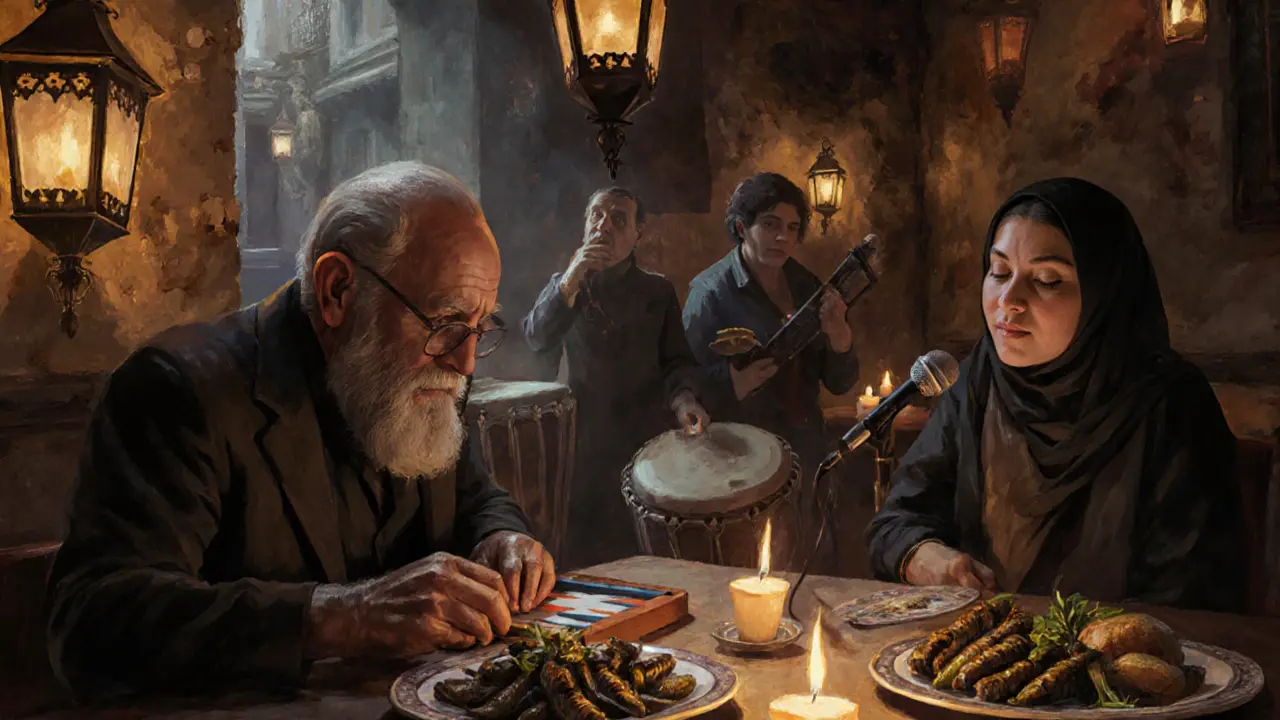
Music That Moves the Streets
Music in Istanbul doesn’t stay in one place. It spills out of doorways, floats over rooftops, and climbs up the hills of Cihangir. In the 1970s, this city birthed Turkish rock. Today, it’s where jazz meets bağlama, and electronic beats blend with Sufi chants.
Head to Karaköy Live on a Thursday. It’s a basement bar with no sign, just a flickering red light. Inside, a trio plays modern interpretations of folk songs. The drummer uses a darbuka. The guitarist plays a saz. The singer? A woman in her 60s with a voice like cracked honey. She sings about lost lovers and the sea. No one claps too loud. Everyone just listens.
For something wilder, go to Leb-i Derya in Kadıköy. It’s a rooftop club with views of the Sea of Marmara. DJs spin remixes of traditional Turkish tunes. The crowd? Students, artists, expats, grandmothers who come to dance with their grandchildren. At 2 a.m., someone starts a line dance. Everyone joins. No one knows the steps. Doesn’t matter. You’re dancing with strangers who feel like family.
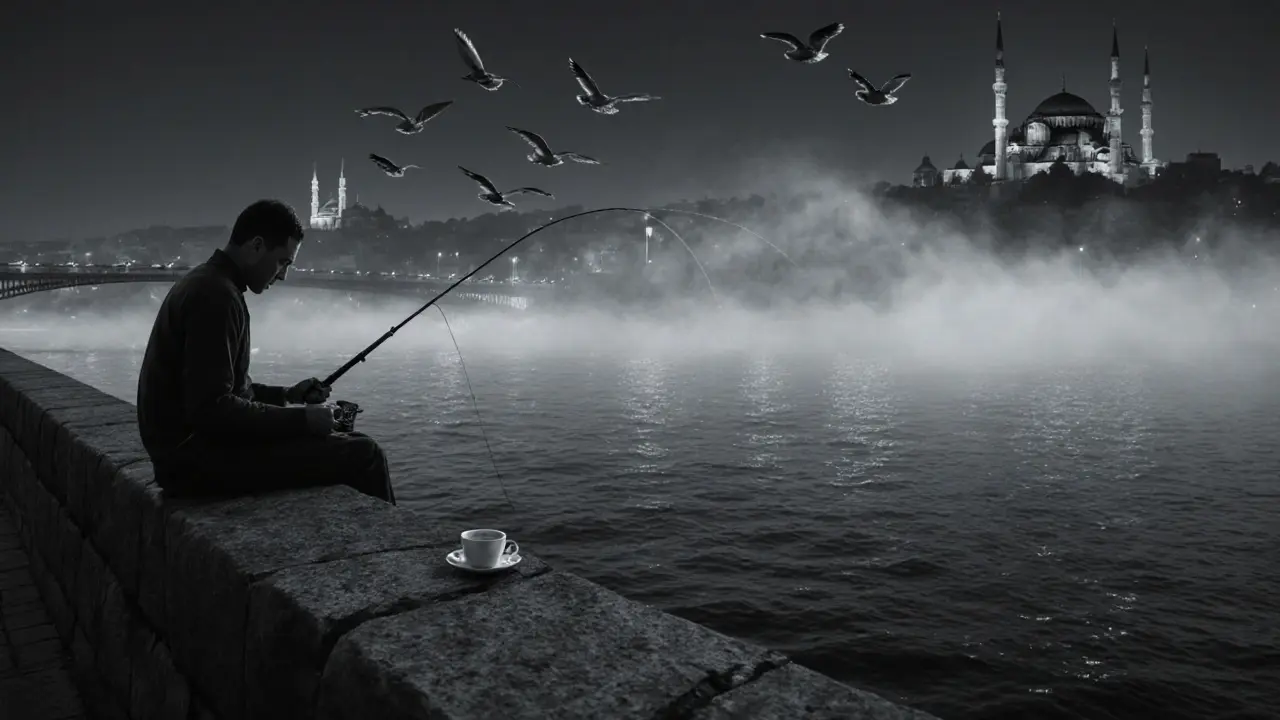
Street Food After Midnight
By 1 a.m., the clubs are emptying. The bars are closing. But the food stalls? They’re just getting started.
Find the Balık Ekmek cart near the Eminönü ferry terminal. Fresh grilled mackerel, crushed tomatoes, onions, and a squeeze of lemon, all stuffed into a crusty bread roll. Eat it standing up. Let the salt air hit your face. This is what Istanbul eats after midnight.
Or walk to the old market in Fatih, where İskender Kebap is served on a plate of tomato sauce and melted butter, with a side of crispy bread. The owner, a man named Mehmet who’s been doing this since 1982, doesn’t speak English. But he knows your name by the third visit. He’ll hand you a glass of ayran without asking. “For digestion,” he says. You don’t argue.
And then there’s the Simit sellers. The ones with the carts and the warm, sesame-crusted rings. They’re everywhere. At 3 a.m., one will hand you a fresh simit and a cup of black tea. No charge. Just a nod. That’s Istanbul. You don’t pay for kindness. You remember it.
When the Night Ends
The night in Istanbul doesn’t end with a bang. It fades. Slowly. Like the last notes of a ney flute. By 5 a.m., the streets are quiet. The last bar closes. The fishermen are already on the water. The mosques begin the call to Fajr prayer. The city exhales.
Walk to the Galata Bridge. Sit on the edge. Watch the gulls circle. Listen to the water lap against the stone. You’ll see a man with a fishing line, maybe a couple holding hands, a student with a notebook. No one speaks. No one needs to.
This is the real nightlife of Istanbul-not the neon, not the Instagram filters, not the clubs with cover charges. It’s the quiet moments. The shared food. The unspoken understanding that here, night isn’t an escape from the day. It’s the day’s truest self.
Is Istanbul nightlife safe for tourists?
Yes, Istanbul’s nightlife is generally safe for tourists, especially in well-known areas like Beyoğlu, Karaköy, and Kadıköy. Police presence is visible near popular spots, and locals are often helpful if you’re lost or unsure. Avoid isolated alleys after 2 a.m., and don’t carry large amounts of cash. Petty theft is rare, but pickpockets can be active on crowded trams or in busy bars. Trust your instincts-most people you meet will go out of their way to help you.
What time do clubs and bars close in Istanbul?
Most bars in Istanbul close between 2 a.m. and 3 a.m., but many stay open later if there’s a crowd. Clubs typically close by 4 a.m., though some rooftop venues and underground spots may run until dawn. In Kadıköy and Beyoğlu, it’s common to find 24-hour cafes and meyhanes that serve food and drinks all night. Turkish law requires venues to stop serving alcohol at 3 a.m., but food and non-alcoholic drinks are always available.
Do I need to dress a certain way for Istanbul nightlife?
No strict dress code exists in Istanbul’s nightlife, but modesty is appreciated in traditional meyhanes and religious neighborhoods. In Beyoğlu and Karaköy, you’ll see everything from jeans and t-shirts to dresses and suits. Avoid overly revealing clothing in conservative areas like Fatih or near mosques. For rooftop clubs and upscale bars, smart casual works well. Comfortable shoes are a must-you’ll be walking a lot.
Can I find vegan or vegetarian options in Istanbul nightlife?
Absolutely. Istanbul has a strong tradition of plant-based eating, especially in meze culture. Dishes like hummus, stuffed peppers, eggplant salad, lentil soup, and grilled vegetables are common. Many meyhanes have dedicated vegetarian menus. In Karaköy and Cihangir, you’ll find fully vegan cafes and bars serving jackfruit kebabs, beetroot burgers, and dairy-free ayran. Don’t hesitate to ask-most staff are used to dietary requests.
What’s the best way to get around Istanbul at night?
The Istanbulkart is your best friend. It works on trams, metros, buses, and ferries-24/7. The tram on İstiklal Avenue runs until 2 a.m., and the metro to Kadıköy runs until midnight, with night buses (N) operating after that. Ferries across the Bosphorus run until 1 a.m. on weekdays and 3 a.m. on weekends. Taxis are plentiful and cheap if you use the BiTaksi app. Avoid unmarked cabs. Walking is safe in well-lit areas like Beyoğlu, but never walk alone in dark, unfamiliar streets.
